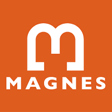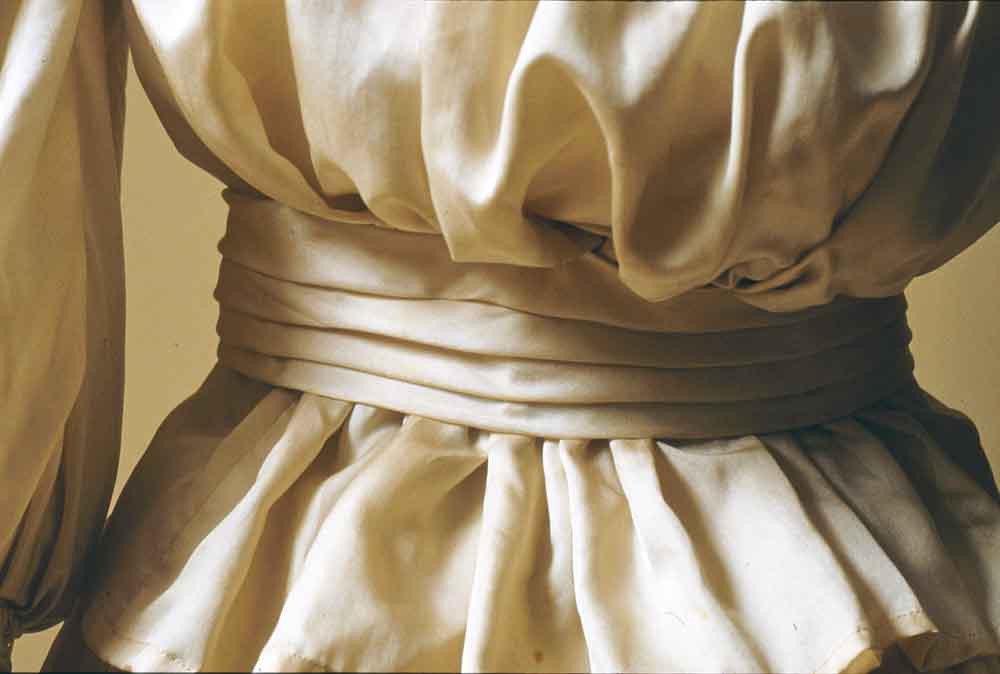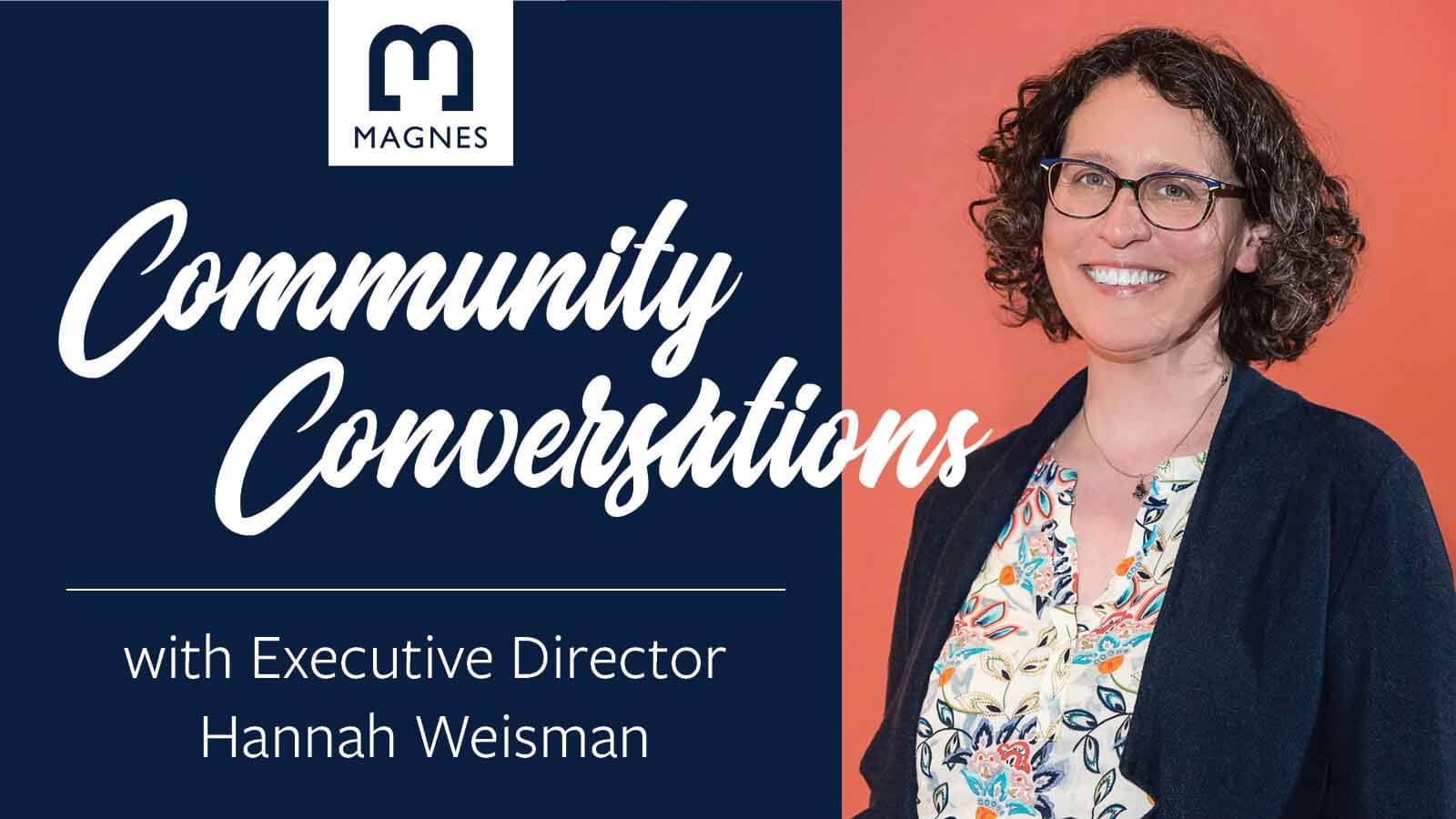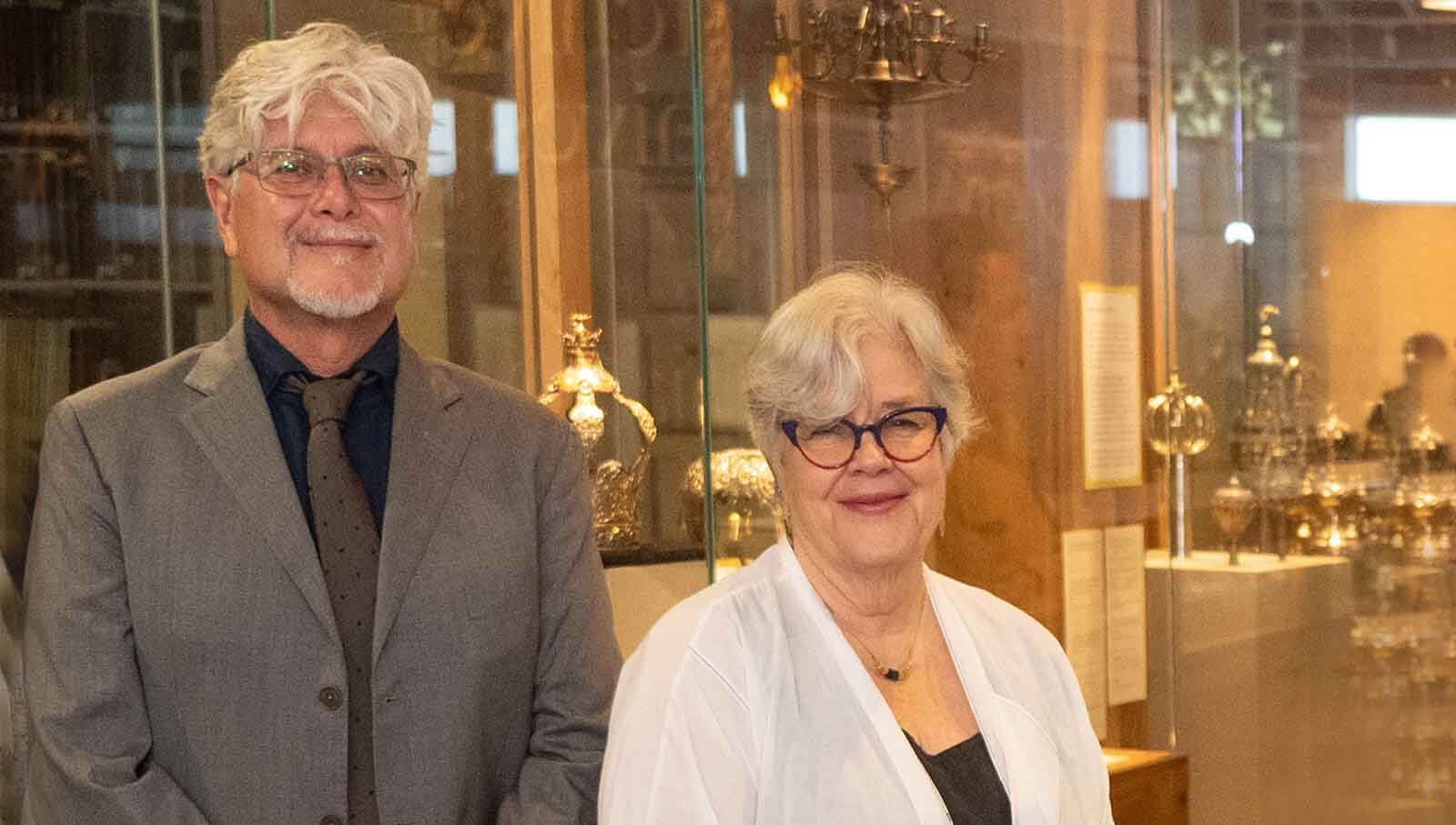News
A message from Director John Efron (Nov 2021)
November 1, 2021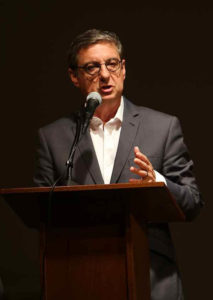
Old papers, dusty books, photographs of long-forgotten people and events never cease to excite my imagination. Even after decades as a scholar and researcher, untangling the past never bores me. However, I must admit that until I became the director of The Magnes earlier this year, I never fully appreciated the behind-the-scenes work that supports my research at an archive, library or museum.
Discovering The Magnes’ outsized collections have repeatedly surprised, amazed and delighted me. As a museum of Jewish material culture, its collections are expansive. They include objects of daily life such as wedding gowns, shoes, handbags, embroidered Torah ark curtains, candlesticks, dinner wear, paintings, drawings, photographs, maps and a wide array of Jewish ritual objects. More than 30,000 items at The Magnes come from the renowned 20th-century photographer Roman Vishniac and form an archive of his lifetime’s work. Smaller collections document past centuries of Jewish life in the Middle East and along the Malabar coast in southern India. A unique collection of century-old objects from Jews in the American West and Jews in San Francisco document a far more recent chapter in the long history of the Jewish people. There is also a small collection of modern art by mid-20th-century Israeli painters that is truly an unexpected discovery.
The Magnes stores most of its collections on site and, like many museums, struggles to raise funds annually to care for them, create exhibitions and creatively engage with students and the public. A decade ago, it became a part of UC Berkeley and moved to its present site. It was a fortunate move. Today, The Magnes is a proud partner in Berkeley’s Center for Jewish Studies, which I also direct. The current exhibition “Time Capsules” revisits 10 of the nearly 40 exhibits that The Magnes has mounted over the decade it has been part of UC Berkeley. Revisiting these exhibitions also highlights the museum’s ongoing engagement with the Bay Area community and students. More than this, the exhibitions are a testament to our fabulously talented and dedicated staff. They imagine exhibitions that open new vistas for even the most casual visitors and their specialized skills give the collections a professional order that enables researchers like me to weave together the threads of the past.
I am pleased that we are introducing two news ways of allowing all of us to become more engaged with the curators of The Magnes. We are adding a Curatorial Corner to our website and our newsletter. It will carry observations about an exhibit or a specific object in the collection from our head curator, Dr. Francesco Spagnolo. I am sure the curators have stories about the collections that will educate, illuminate and sometimes amuse us all. In addition, we have begun a program of monthly “Backstage at The Magnes” tours. Ask questions, see parts of the museum otherwise closed to visitors and make new Magnes friends as part of a personalized small-group visit.
Although the collections and their professional care are the museum’s core, at The Magnes, everyone has a commitment to teaching about the material culture of the Jewish people. I would be proud to welcome you and introduce you to our magnificent collection, a jewel on the campus of our world-renowned university!
With deepest gratitude,
John Efron
Esther and Jacques Reutlinger Director
The Magnes Collection
Koret Professor of Jewish History
Latest News
Keep Up-To-Date
